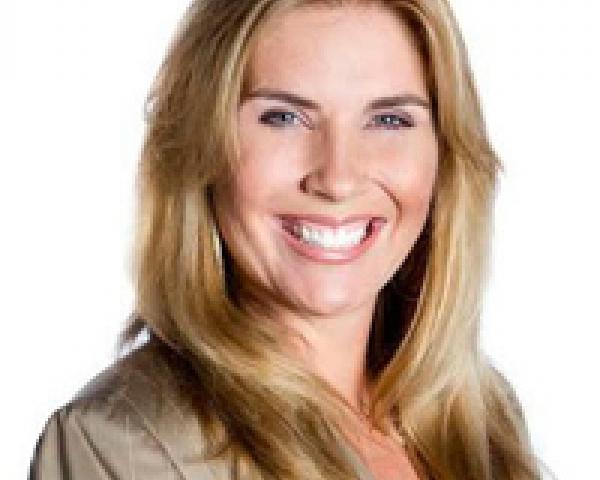Ask a millennial who has just bought a car, "How much did you pay for it?" and the typical answer would be something like, "about $300 a month."
The same scenario will play out with other purchases such as a home, an expensive computer and virtually any other big-ticket consumer purchase.
There is nothing wrong with putting the monthly cost (access) of a product ahead of the final price (ownership), because, in the mind of today's consumers, ownership is increasingly the exception to the rule.
Less Emphasis on Ownership
In one of
my previous articles, I summarized this point with the following:
"Rather than worrying about status, ownership and hierarchy, think about the benefits of access, collaboration, trust and sharing."
In fact, most millennials, (born 1985 and later) are in the accumulation and the consumption stage of their lives but are giving
very little credence to ownership. For millennials, ownership signals responsibility and maintenance; two terms that this consumer group
has very little interest in. Owning something is not convenient.
Although this new attitude may signal a disruption to the status quo (baby boomers), this new idea of access over ownership can easily be embraced by manufacturers, marketers, retailers and, most importantly, insurers.
Things that we rent, lease or share, also require a manufacturer, marketer, retailer and insurance policy. Rather than own – we share.
Let's dig a little deeper.
See also: Navigating Through Tough Times With The Aid Of Employee Ownership
The Sharing Economy
There are many prominent examples of this shift from ownership to access. Consider the two sharing economy platforms that started it all:
Airbnb and
Uber.
Airbnb was founded in 2008 when three determined entrepreneurs realized the need for more guest accommodations that could be booked online. Their approach to the hospitality industry started with a blow-up mattress but is now valued at
$30 billion. The
Airbnb story is a groundbreaking example of the sharing economy and how it disrupted the status quo.
Uber, which got its start about the same time as Airbnb, set out to resolve a perceived transportation need. And what a ride it has been! Created as an online method to hire a car and driver in large metropolitan areas, the company created an online platform that connects riders with drivers through an innovative on-demand mobile application. The simple, yet brilliant, strategy has garnered more than
one billion users.
What Was That About Ownership?
And what does all of this have to do with ownership? Everything!
These two platforms own
nothing. They don't own homes or cars. Yet Airbnb has
more than two million properties worldwide, and Uber
has more than one million vehicles on its platform.
Access: But Wait, There’s More!
What if you need to get an expensive evening gown but plan to use it rarely? Check out
Rent the Runway where you can access what you may not be able to afford to own. You can rent a $3,000 gown for $75.
What happens when you must travel out of state to attend a funeral and can’t afford the high costs of a kennel? Welcome to
Dog Vacay. This platform provides a list of people in your area who love dogs and will charge less than a kennel.
What if you want to impress someone by pulling up to their home or office in an expensive sports car? No problem.
Turo can match you with the owner closest to you who will rent that sleek, fast-moving ride by the hour or by the day.
Your in-laws just called and said they would be joining you for the weekend. Your schedule is hectic, and your apartment a disaster. You check out
TaskRabbit to gain access to someone in your neighborhood who can’t wait to clean your apartment so your in-laws won’t think you’re a slob.
By now, you should be getting the picture that consumers are sharing their consumption needs and services without considering ownership, and the price tag that comes with it.
The Impact on the Insurance Industry
Insurance professionals must adapt as millennials kick over the economic tables. Carriers must respond by creating products to manage the sharing risks or, at the very least, offer endorsements for personal and commercial products currently in the marketplace.
Questions must be answered. Like...
- If I rent my expensive tuxedo on a sharing site, does the platform provide coverage, does my renter's policy provide coverage or is my tuxedo now considered business personal property, meaning I have to get commercial coverage?
- If I decide to board a neighbor’s dog through a sharing site, does the sharing site provide liability, or will my homeowner’s policy cover a dog bite from a neighbor’s dog when I’m charging that neighbor a boarding fee?
- I know I can get a landlord’s policy to cover a home I’m renting, but will coverage apply for daily rentals? What if I’m renting the home I live in while I’m on vacation? Will my HO3 cover when I’m renting my residence for a week or two?
Although insurers have begun to respond to the
home-sharing and
ride-sharing scenarios, what about all the other products and services that are now being shared rather than purchased?
See also: How to Lead Change (Part 2)
Agents need to ask all current and prospective clients about the reality of renting their assets, to determine if a coverage issue is on the horizon.
Agents must let insurers know what’s changed in the marketplace and how they can transfer these new risks in an efficient and affordable manner.
If you have not become familiar or heard much about the new sharing economy, shouldn't it be your responsibility as a trusted adviser to uncover and point out the risks that are unfamiliar and likely not disclosed in a traditional client/broker conversation?
Educating clients must be a top priority heading into 2017 and beyond.








